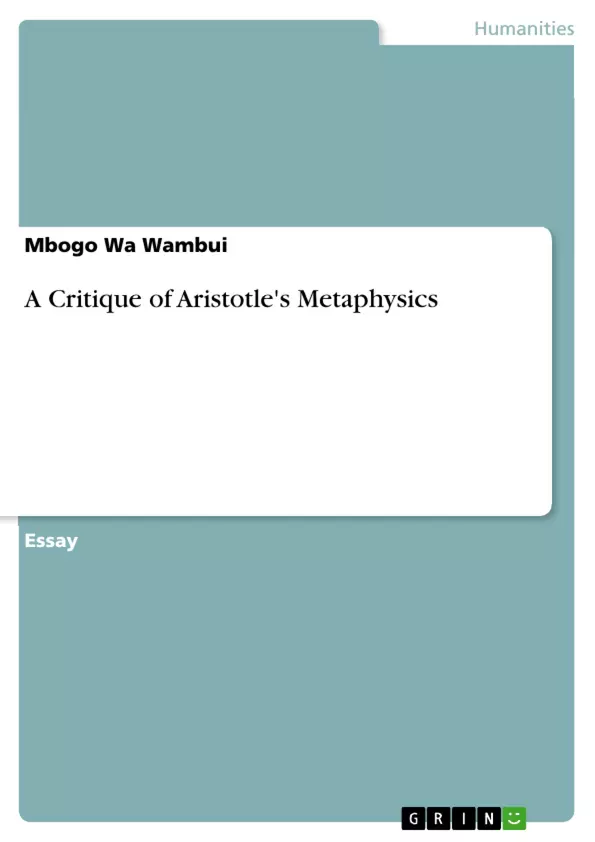The paper shows that it is possible to find dissenting views to Aristotle’s text "The Categories". However, the author argues that Aristotle’s metaphysics is credible and influential even today. When considering for example substance, place, time, quantity and quality are inescapable when seeking to understand properties of matter. They also can explain properties of incorporeal beings. Granted Aristotle’s metaphysics is better understood by abstraction, his definitions are explicable, and understandable.
Inhaltsverzeichnis (Table of Contents)
- Aristotle's Categories
- Things That Are Said
- Things That Are
- The Ten Categories
- Substance
- Criticisms of Aristotle's Categories
- Spinoza's Monism
- Leibniz's Monads
Zielsetzung und Themenschwerpunkte (Objectives and Key Themes)
This paper examines Aristotle's metaphysics, specifically focusing on his theory of categories and substance. It explores the development of Aristotle's ideas, highlighting key concepts such as substance, accidents, and the ten categories. The paper also analyzes criticisms of Aristotle's metaphysics from prominent philosophers like Spinoza and Leibniz.
- Aristotle's Theory of Categories
- The Concept of Substance in Aristotle's Metaphysics
- Criticisms of Aristotle's Categories by Spinoza and Leibniz
- The Importance of Aristotle's Metaphysics in Contemporary Thought
- The Concept of Accidents in Aristotle's Metaphysics
Zusammenfassung der Kapitel (Chapter Summaries)
The first chapter delves into Aristotle's conception of categories, exploring his division of "things that are said" and "things that are." It outlines the four types of "things that are" according to Aristotle and introduces the concept of substance as a key category. The chapter further examines the ten categories proposed by Aristotle, emphasizing the importance of substance, quantity, and quality.
The second chapter focuses on criticisms of Aristotle's categories, particularly those put forth by Spinoza and Leibniz. Spinoza's monism is contrasted with Aristotle's approach, highlighting the differences in their conceptions of substance. Leibniz's theory of monads is also presented, contrasting his view of an infinite number of substances with Aristotle's singular substance.
Schlüsselwörter (Keywords)
This paper focuses on the following key terms and concepts: Aristotle's Categories, Substance, Accidents, Spinoza, Leibniz, Logical Monism, Monads, Metaphysics, Philosophy.
- Arbeit zitieren
- Mbogo Wa Wambui (Autor:in), 2011, A Critique of Aristotle's Metaphysics, München, GRIN Verlag, https://www.grin.com/document/703976



